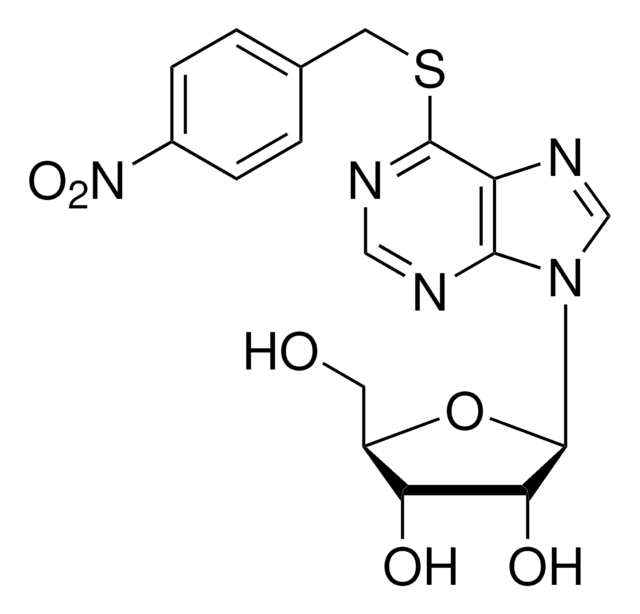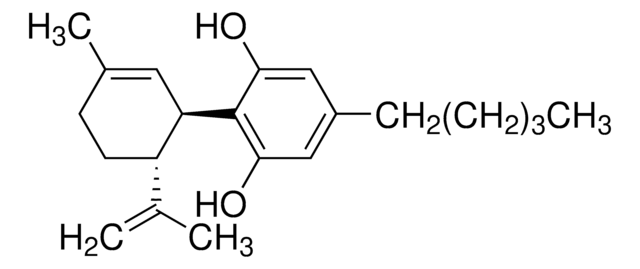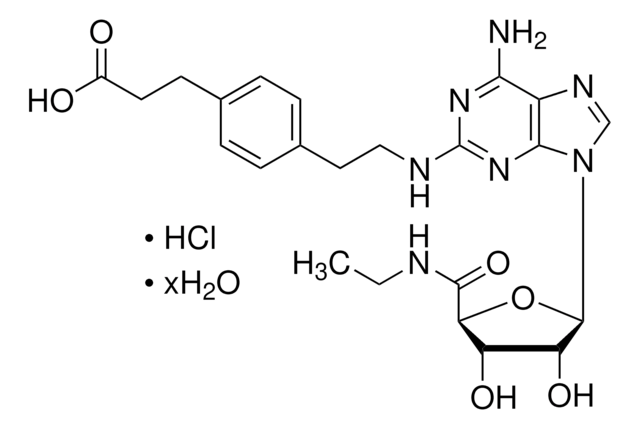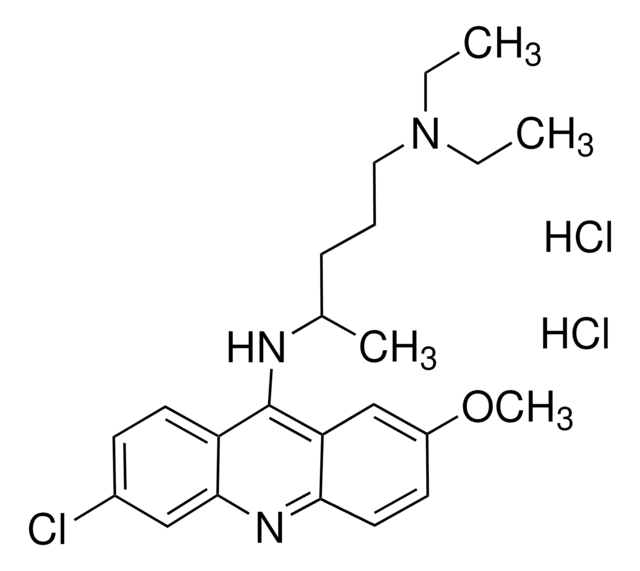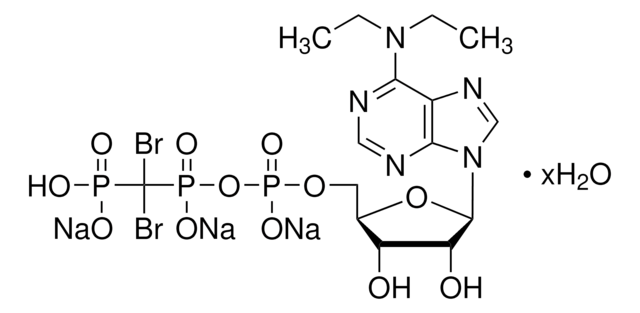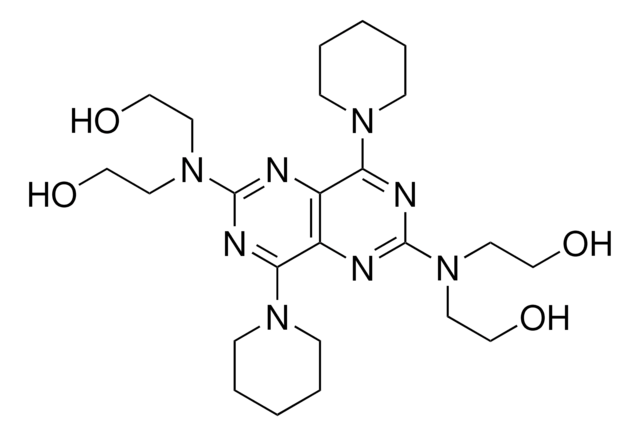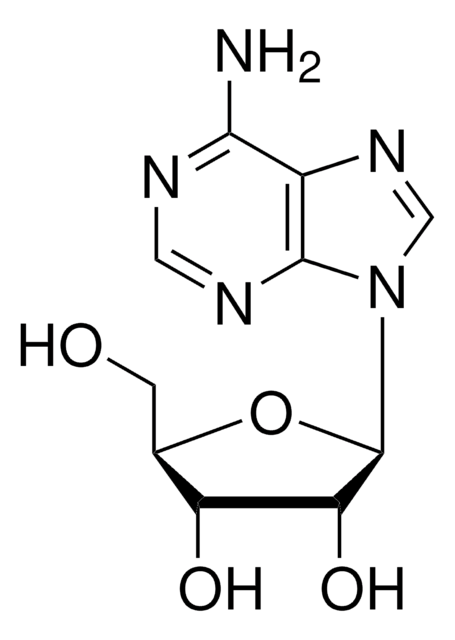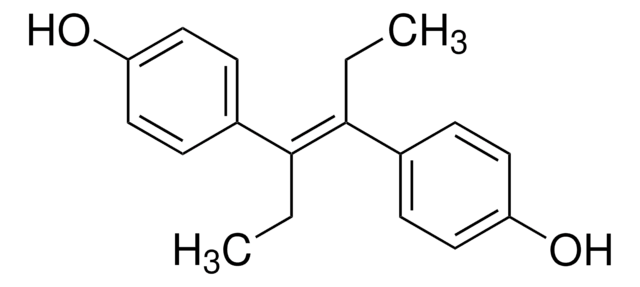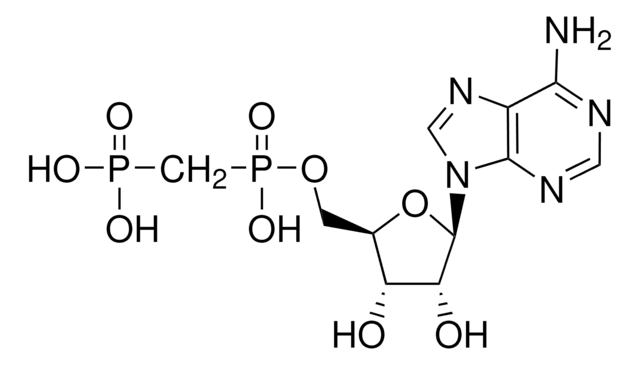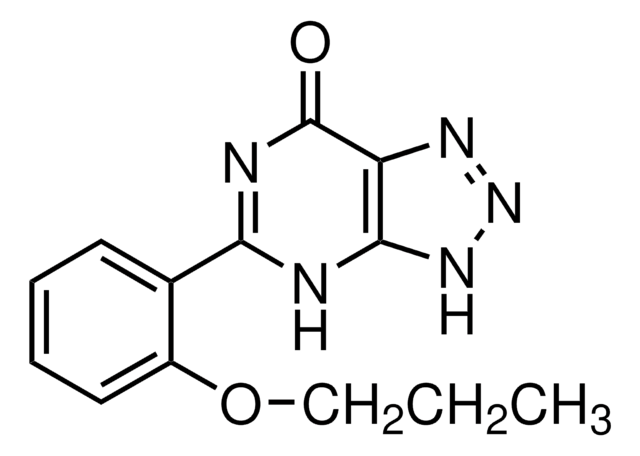D9766
Dipyridamole
≥98% (HPLC), powder, phosphodiesterase V inhibitor
Synonym(s):
NSC 515776, NSC 619103
About This Item
Recommended Products
product name
Dipyridamole, ≥98% (HPLC)
Quality Level
Assay
≥98% (HPLC)
form
powder
color
yellow
mp
165-166 °C (lit.)
solubility
DMSO: soluble
ethanol: soluble
originator
Boehringer Ingelheim
storage temp.
room temp
SMILES string
OCCN(CCO)c1nc(N2CCCCC2)c3nc(nc(N4CCCCC4)c3n1)N(CCO)CCO
InChI
1S/C24H40N8O4/c33-15-11-31(12-16-34)23-26-20-19(21(27-23)29-7-3-1-4-8-29)25-24(32(13-17-35)14-18-36)28-22(20)30-9-5-2-6-10-30/h33-36H,1-18H2
InChI key
IZEKFCXSFNUWAM-UHFFFAOYSA-N
Gene Information
human ... CYP1A2(1544) , PDE10A(10846) , PDE1A(5136) , PDE1B(5153) , PDE1C(5137) , PDE2A(5138) , PDE3A(5139) , PDE3B(5140) , PDE4A(5141) , PDE4B(5142) , PDE4C(5143) , PDE4D(5144) , PDE5A(8654) , PDE6A(5145) , PDE6B(5158) , PDE6C(5146) , PDE6D(5147) , PDE6G(5148) , PDE6H(5149) , PDE7A(5150) , PDE7B(27115) , PDE8A(5151) , PDE8B(8622) , PDE9A(5152) , SLC29A1(2030)
mouse ... Slc29a1(63959)
Looking for similar products? Visit Product Comparison Guide
General description
Application
- to perform in vitro growth inhibition assay(40)
- to determine its ability to prevent uterine myometrial contractions(41)
- to determine its effects on nicotinamide adenine dinucleotide (NAD+)-induced increase in intracellular adenosine triphosphate (ATP) levels(42)
- to prevent nicotinamide riboside (NR)-induced axonal protection(43)
Biochem/physiol Actions
Features and Benefits
Storage Class Code
11 - Combustible Solids
WGK
WGK 2
Flash Point(F)
Not applicable
Flash Point(C)
Not applicable
Personal Protective Equipment
Certificates of Analysis (COA)
Search for Certificates of Analysis (COA) by entering the products Lot/Batch Number. Lot and Batch Numbers can be found on a product’s label following the words ‘Lot’ or ‘Batch’.
Already Own This Product?
Find documentation for the products that you have recently purchased in the Document Library.
Customers Also Viewed
Related Content
Cyclic nucleotides, including cyclic AMP (cAMP), cyclic GMP (cGMP) and cyclic ADP-ribose, have been extensively studied as second messengers of intracellular events initiated by activation of GPCRs. cAMP modifies cell function in all eukaryotic cells, principally through the activation of cAMP-dependent protein kinase (PKA), but also through cAMP-gated ion channels and guanine nucleotide exchange factors directly activated by cAMP.
Our team of scientists has experience in all areas of research including Life Science, Material Science, Chemical Synthesis, Chromatography, Analytical and many others.
Contact Technical Service